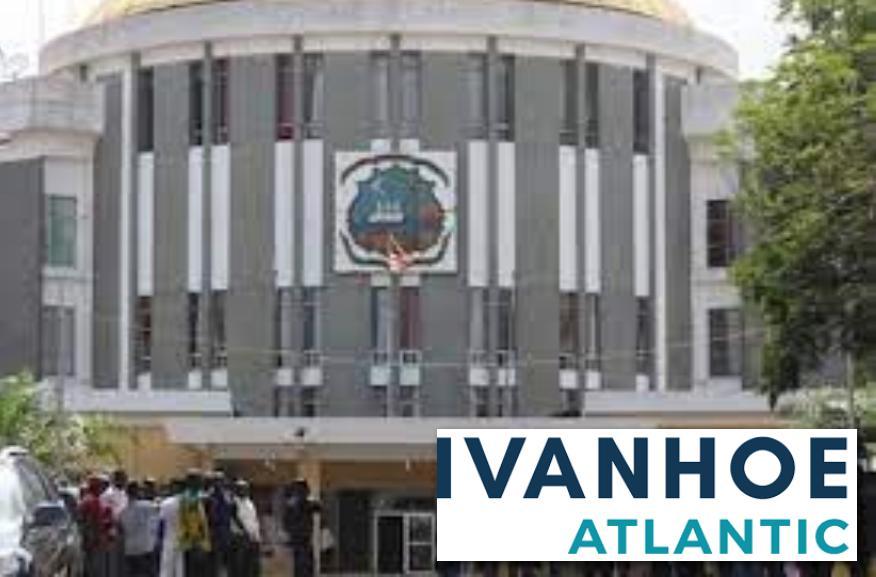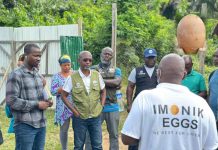Africa-Press – Liberia. When Liberia and Guinea signed the Implementation Agreement in October 2019, it was celebrated as a model of cross-border cooperation, a legal framework meant to ensure that any Guinean mining company seeking access to Liberian rail and port infrastructure would do so transparently, fairly and with the explicit consent of both governments.
Fast forward to the proposed Concession and Access Agreement (CAA) between Liberia and Ivanhoe Liberia (HPX/SMFG), and major questions now hang over whether the procedures laid out in that bilateral Agreement were ever respected.
The Liberian Senate has already demanded “documentary evidence” proving Guinea’s consent before debating the Ivanhoe agreement. Representative Alex Noah of Sinoe County also wrote the House plenary requesting an investigation into how Guinea views Liberia’s intent to enter a deal allowing Ivanhoe to transport Guinean ore through Liberian territory.
With these developments gaining national attention, expectations were high as key ministries and agencies appeared before the House of Representatives on Tuesday to clarify how the CAA aligns with Guinea’s approval under the bilateral framework. But the session quickly fell short.
The House Committee on Lands, Mines, Energy, Natural Resources and Environment faced public criticism after failing to address intensifying concerns over Guinea’s decision to push ahead with its own multi-billion-dollar Trans-Guinea Railway — a development many Liberians fear could permanently undermine the country’s longstanding ambition to serve as a regional mining transit hub.
Lawmakers were widely expected to interrogate the consequences of Guinea’s new rail corridor, which will link the ore-rich Beyla region to the new deep-water port at Moribayah in Forécariah. Yet despite repeated warnings from Liberian technocrats, civil society organizations and economic analysts, the Committee avoided substantive questions, leaving major national concerns untouched.
Representative Dorwin Gleekia of Nimba District 6 attempted to raise how the Ivanhoe agreement aligns with the Liberia-Guinea Implementation Agreement, but was shut down by Representative Foday Fahnbulleh, Chair of the House Committee on Investment and Concessions, who dismissed the concern as outside the “scope of the hearing.”
Representative Marcus Thomas also pushed to understand the operational status of SMFG, Ivanhoe’s Guinean subsidiary, even showing images on his phone to illustrate the evolving situation in Guinea. His inquiry was immediately blocked by the presiding chair.
Yet the issues they attempted to raise go to the heart of the bilateral rulebook both countries signed.
Under Article 5 of the Implementation Agreement, any Guinean mining company seeking to use Liberia’s rail or port must undergo a two-stage approval process:
a Request for Eligibility vetted by Guinea, and a Request for Access submitted to Liberia and jointly reviewed by the Monitoring Committee, with final approval granted only by the Inter-Ministerial Committee (IMC).
Article 9 formally established these committees to prevent unilateral decisions and ensure both governments participate in every cross-border infrastructure decision.
Article 7 mandated a Technical Secretariat to prepare a standard Access Agreement template, guaranteeing fairness and consistency for all users.
Additionally, the Implementation Agreement currently allows only 5 million tons of Guinean ore per year through Liberia far below Ivanhoe’s ambition to transport 15–20 million tons annually, raising further concerns about compliance.
Tuesday’s hearing was expected to be the moment Liberia confronted the shifting regional landscape. For years, Liberia positioned itself as the natural evacuation route for Guinean ore, especially for companies like Ivanhoe that have aggressively sought access to the Yekepa-Buchanan railway. But with Guinea constructing its own domestic railway and port, the question of whether Liberia still fits into Guinea’s long-term logistical strategy remains unanswered.
Instead of confronting these wider geopolitical realities, Committee members concentrated on peripheral issues and avoided discussions that would have clarified Guinea’s new commercial posture, the changing regional transport map, or the potential economic risks Liberia faces if it continues relying on outdated assumptions about cross-border ore transport.
Our reporter, who witnessed the hearing, noted that lawmakers failed to ask why Guinea after investing billions in its own infrastructure would still depend on Liberia’s rail corridor. Nor did they probe whether Guinea would even permit cross-border ore transport once its new infrastructure becomes fully operational.
This failure reflects a deeper challenge within Liberia’s legislative oversight: an unwillingness to confront external commercial decisions that directly affect national revenue, long-term infrastructure planning and the country’s strategic relevance in the sub-region.
As Guinea speeds ahead with rail and port construction, Liberia is left with a narrowing window to redefine its role in West Africa’s mineral economy. Yet Tuesday’s hearing offered no indication that lawmakers are ready to confront this reality or articulate a coherent national position.
In the corridors of the Capitol, a silent but pressing question remains: if the Legislature cannot interrogate a matter of this consequential, who will safeguard Liberia’s economic future?
For More News And Analysis About Liberia Follow Africa-Press






